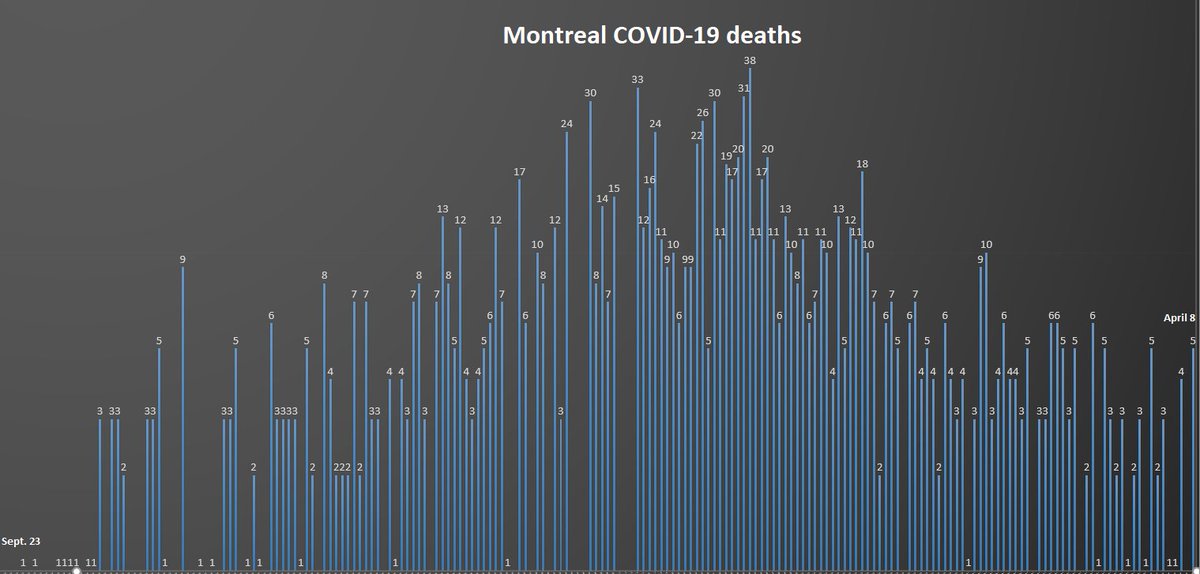
1) The impact of the third wave on Quebec hospitals thus far is not nearly as severe as what is going on in Ontario, but there are ominous signs the situation is deteriorating in the acute-care system here. In this thread, I will examine those signs.
2) As I report in my @mtlgazette column tonight, over-burdened Maisonneuve-Rosemont Hospital is now offloading #COVID19 patients to nearby Santa Cabrini Hospital. The reason is a severe shortage of nurses. montrealgazette.com/news/local-new…
3) In the past nine days, the number of #COVID hospitalizations in Quebec has jumped from 487 to 566. The biggest increase is being observed in the 60-to-69 age group, as you can glimpse from the chart below. In the first wave, it was patients in their 80s who were hospitalized. 

4) Quebec’s health professionals are burned out and exhausted, having treated #COVID19 patients in three consecutive waves. Hundreds of nurses have quit the profession, making it that much harder to reduce a backlog of more than 140,000 surgeries.
5) Apart from #COVID hospitalizations, more patients are being admitted with advanced disease — from cancer to heart ailments. So although Quebec is so far reporting one-third of the hospitalizations from the last wave's peak, the health-care system is already severely weakened.
6) In the meantime, the #COVID19 clusters keep flaring up. In Gatineau, the Hull prison outbreak has more than doubled to 46 infected inmates, plus 16 guards. Outbreaks rose by 10 to 250 in schools and by six to 65 in health-care settings.
7) Despite the mass vaccinations of the province’s seniors, outbreaks have erupted in long-term care centres in Chaudière-Appalaches and the Montérégie in the last few days. This demonstrates that stringent precautions must be taken even after inoculations.
8) Because of the more contagious variants, authorities are not taking any chances in schools. As a consequence, 444 schools have shut temporarily, and more than 9,000 classes have been shuttered. These figures are unprecedented in the @pandemic.
9) In this context, it seems prudent that Premier François Legault announced on Thursday he is extending public health restrictions in Quebec City, Lévis and Gatineau by a week. But it’s puzzling that he didn't proceed with tougher restrictions for Montreal.
10) Dr. Horacio Arruda, Quebec’s chief public health officer, offered his condolences Thursday to the family of a 40-year-old Quebecer who died from #COVID19. The #pandemic death toll in the province rose by nine to 10,718. End of thread. Please limit your social contacts. 

• • •
Missing some Tweet in this thread? You can try to
force a refresh




